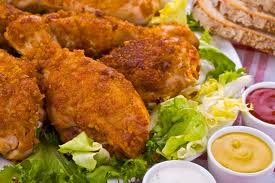Ahmed Rahami, a young Afghani, recently entered a courtroom in Manhattan to face terrorism charges for planting bombs this September in New York City and in New Jersey. His father, Mohammad, who owned a fried chicken shop in Elizabeth, a fading industrial town in northern New Jersey, had fought with the Mujahideen in Afghanistan after the Russian invasion. Elizabeth attracted many Muslim immigrants: “We’re a seaport town. You get off the plane and you’re in Elizabeth,” mosque President Hassen Abdullah told Reuters.
Like other immigrants in the food business, Mohammad was pursuing a time-honored path to acceptance and advancement in America. The Afghan refugee, whose restaurant also sold burgers, ice cream, barbeque ribs, and cheese fries, chose a route popular with his compatriots. His “chicken shack,” to use the common nickname, was one of a legion of these ventures, many located in New Jersey and New York City. Like First American Fried Chicken, Mohammad’s operation, the names of shops broadcast their owners’ embrace of their new land—Texas, Boston, Harlem. The businesses attracted emigrés looking for jobs. Their patrons taught them the ropes: “It’s like a formula,” one proprietor explained to The New York Times. “We tell them how to go to the building department, how to save money by cutting and installing their own bulletproof glass.” “When the new ones come to the store, they sit. They watch. They learn and they work.” Armed with these skills, many move on to start their own shops.
The entrepreneurs instinctively knew that success required catering to popular tastes. Rather than drawing on their own food traditions, they borrowed from America’s fast food repertoire. Their story reminded me of my friend, George Rababy, who sold customers cheese steaks in his Washington falafel shop. It all made good business sense. “You know, Afghanis don’t even like eating fried chicken,” a business owner commented to Dan Bilefsky of The New York Times.
As more eager Afghanis entered the trade, the fried chicken business was ripe for commercial combat. Abdul Haye, a chicken magnate who built a chain of shops in New York City, set out in 2011 to squash rivals he considered fraudulent competitors. Haye, who claimed the trademark for Kennedy Fried Chicken, threatened lawsuits against several shops using its name: “I’m declaring war against all the Afghanis in New York who have stolen my name and my idea,” he told Bilefsky. “Their poor-quality chicken is going to kill my reputation,” he said. “I am the only real Kennedy.” Haye, who had begun his career at age 18 as a chicken fryer, had actually modeled his own chain, initials and all, on Kentucky Fried Chicken.
The road to the mainstream for First American could at times be a rocky one. For all its desire to please, the family enterprise was sometimes met with suspicion and resistance. One neighbor, the Rahamis claimed, told them that “Muslims shouldn’t have businesses there.” Another group of ethnic merchants in America, the early Greek restaurant and confectionary owners, often faced virulent harassment and violence from the Ku Klux Klan and other groups.
Ahmad Rahami was, at best, a reluctant convert to the chicken business. In time, he would lose whatever appetite he had for Americanization.
While working at First American Fried chicken, he gradually adopted the hip garb of his teenage contemporaries—baggy jeans and Air Jordans. He reveled in hip hop and, as New York Times writer N.R. Kleinfield reported, enjoyed racing “souped up” Honda Civics.
Ahmad’s persona changed. After several trips to Afghanistan and Pakistan, he became enthralled with the preachings of jihad. He would sometimes wear traditional robes and pray at the back of the store. More ominously, he watched raptly El Qaeda and Taliban videos. His father told the police that his son, who had once dreamed of being a police officer or a translator for the military, was a “terrorist.”
Ahmad’s terrorist deeds cast a shadow over a family who wanted desperately to join the society, not revile it. The wayward youth from the fried chicken clan had rejected his family’s goals for the seductions of a radical ideology.








